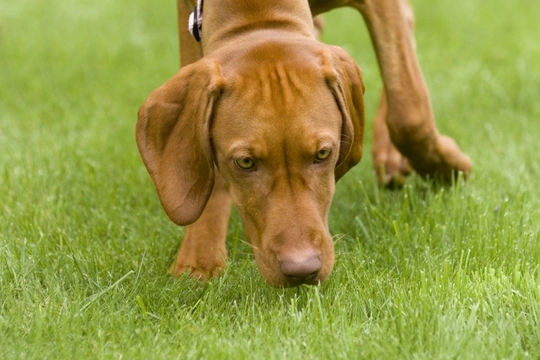
Five amazing things that dogs can smell that we humans can’t detect
We all know that dogs have a more acute sense of smell than us humans, and you’ve probably seen this effect in action if you’ve ever tried to sneak a snack in another room without your dog catching on!
However, we don’t always appreciate just how much better the dog’s sense of smell is compared to our own, and not only does it mean that your dog can smell things from a much greater distance away than we can, but also that they can pick up minute scent traces long after the trail has been left, as well as scents that are completely undetectable to humans at all.
This gives dogs a huge range of applications when it comes to working with humans, and putting those olfactory senses to work to detect things that we would never realise were present in the environment.
Sniffer dogs are used for everything from scenting people, corpses and contraband to bombs, weapons and even illnesses – and the chances are, some of the things that dogs can scent and be trained to detect will come as a surprise.
In this article we will share five amazing things that dogs can smell that we humans can’t detect. Read on to learn more.
How much can dogs actually smell?
Let’s start by sharing what we know for sure about the dog’s sense of smell, and how it differs from our own to give dogs an edge. Humans have around five million scent receptors in total, which might sound quite impressive – until you compare them to dogs! Dogs have around 220 million olfactory receptors, and so the sheer scale and scope of what they can smell and from how far away beats us hands down.
Additionally, your dog’s scenting acuity is way better than yours too, in terms of the number of scent particles that dogs need to detect a scent. Dogs are way ahead once again, with a scenting acuity of between 10,000-100,000 better than ours, which means that dogs can detect faint scents and scents from much further away from us too.
So how can the dog’s scenting skills be applied in practice to sniff out things we can’t? Here are five things your dog can smell that you can’t.
Diabetes
Diabetics and people who have a friend or family member with diabetes might already be familiar with the distinctive sour-sweet smell that indicates ketosis, a state in which the body begins to metabolise its own fat stores due to an insulin imbalance.
Ketosis can cause a distinctive breath taste and faint smell that people can sometimes detect, but dogs can detect the scent of a blood/glucose imbalance when it is just beginning, and can be trained to do so and to alert their owner that they need to check their insulin levels.
Diabetes detection dogs can now be specially trained to help diabetic people to manage their health and medications, and enjoy an easier lifestyle.
Fertility
If there’s a bitch in heat in your local area, male dogs from miles around are likely to seek it out and congregate around the home, in the hopes of mating. A bitch in heat gives out strong scent signals, but dogs can also pick up minute changes in human body chemistry too, and identify when a person is fertile, menstruating, or even pregnant!
Certain types of cancers
Cancer can be incredibly hard to detect even when it is causing symptoms in some cases, but early diagnosis and treatment is vital to give the patient the best chance of achieving remission or recovery.
Cancer and some other illnesses cause a distinct change in the body chemistry, and this in turn causes subtle changes to the individual scent of the person in question – and dogs can smell the difference.
Breast cancer and lung cancer are just two types of cancer that dogs can not only detect, but be specially trained to sniff out, and this can be invaluable in helping doctors to identify potential cancer victims early on, and devising the best course of action.
Ambergris
Ambergris is a costly and rare ingredient used in perfume making and other applications – and ambergris is essentially whale vomit or poop – which can be worth a lot of money to the finder! Natural ambergris has a distinctive and many say foul smell, and when fresh and nearby, people can often sniff it out.
However, dogs can also be trained to sniff out ambergris, and they’re much better at it than we are, able to identify the presence of ambergris nearby and find it in amongst the other detritus they may find on the beach.
Bootleg DVDs
DVDs aren’t something that we think of as producing a smell – nor being something that it would be valuable to be able to sniff out. But pirated, copied and other forms of illegal DVDs make up a large underground trade in many countries, and production companies spend a lot of time and money trying to prevent their manufacture and sale.
Dogs have actually been trained to sniff out and find caches of pirated DVDs, helping the police to close in on importers and producers, and achieve successful prosecutions. Clever!



